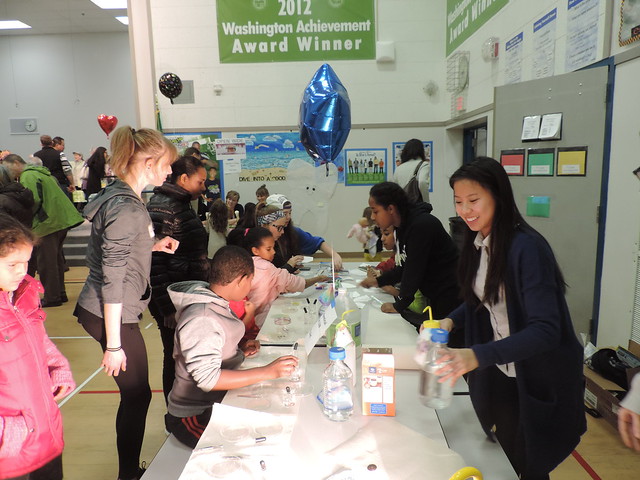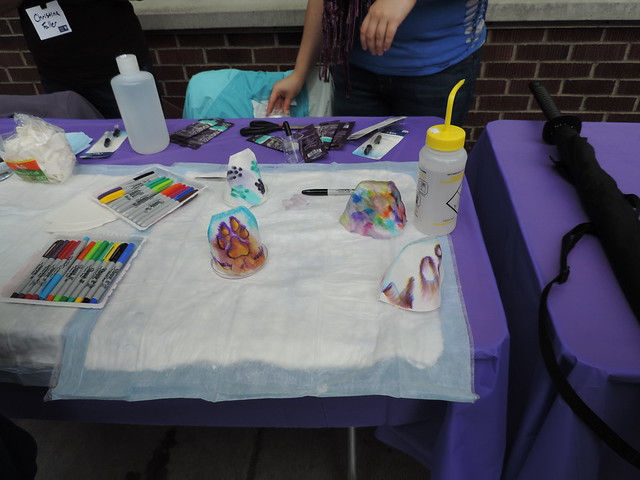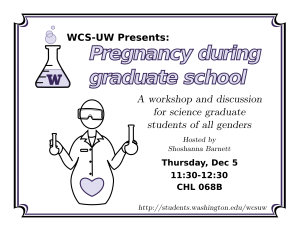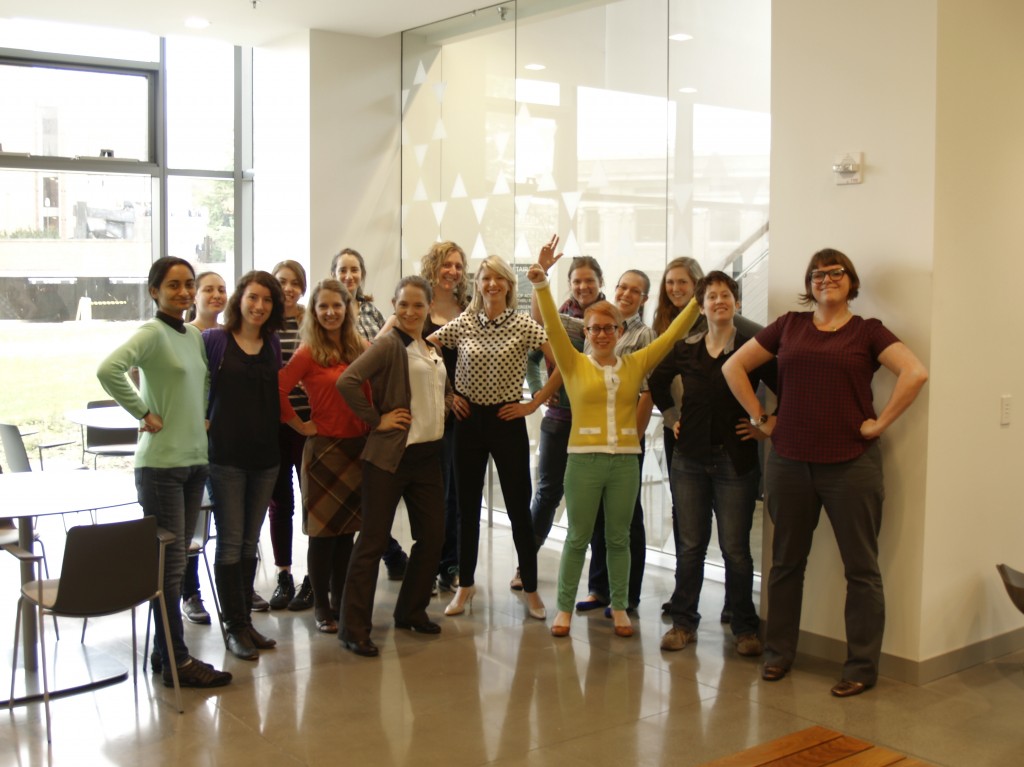By Joan Bleecker
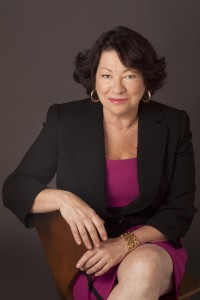
UW offers its students amazing opportunities to meet professional women who are making a difference in the nation and the world. Last November, Women in the Chemical Sciences invited Harvard Business School Professor Amy Cuddy of “Power Pose” fame. This March, Undergraduate Academic Affairs hosted sitting Supreme Court Justice Sonia Sotomayor.
The format of the event was question and answer. Students submitted questions online which UW Provost Ana Mari Cauce read to the Justice. Unexpectedly, Justice Sotomayor asked each student who wrote a question to stand up so she could greet each by name, thank him/her, and gather all for a group photo. You could tell the organizers were caught off guard by this, but the Justice seemed un-phased. It was inspiring to see her break protocol and connect with her audience. It made me think of how often I stick to the script and do what’s expected of me, even if it means sacrificing meaningful interactions.
I was also struck by how Justice Sotomayor paused after each question, sometimes for quite a long time, to think about her response. Even though video cameras and thousands of eyes were focused on her, she was not rushed or ruffled. Accordingly, almost everything she said was quotable. (I was scribbling fairly furiously trying to take down my favorite ones).
Justice Sotomayor admitted she is her own worst critic. “You don’t judge me, I judge me.” This belief has helped her dismiss outside criticism, including criticism leveled by U. S. Senators at her confirmation hearings, who said she was not intelligent enough for the position, and a time when a court employee called her “honey”. She politely told him it was “Justice”.
Though loath to give advice, Justice Sotomayer shared some great insights. She emphasized the importance of community and connecting with others, admitting “I didn’t make it to where I am by myself.” She spoke about how important her grandmother’s unconditional love and care were to her growing up saying “You need someone to talk to who can comfort and help you.”
As a women and Latina in high office, she received many questions about how minorities can move up in society. One of her more blunt answers was “make money”, but overall her message went beyond race or gender to what makes life fulfilling, “The greatest contribution you can make to the world is figuring out what you think is important to you. What kind of work is meaningful? What are you good at?” She emphasized that you didn’t have to be a Supreme Court justice or a community leader, but you must “…think outside of your own needs to look around and say, there is this little piece of my world that I want to make a difference in.” She also admitted “I cannot guarantee outcomes. No one can. The frustrations with that are sometimes the most difficult to deal with.” She admitted it was about “moving a mountain an inch at a time” and in spite of adversity there is always hope.
When asked what made her a great leader, she said she never meant to be a leader, but “if you have enough strength of character you can convince others to join you.” She also talked about being in power, “The thing you learn about power is that it’s shared,” and, “Power can corrupt. I watch it and I know it can make you full of yourself if you let it. And I’m trying to work very, very hard to always remember that I didn’t get to where I got by myself. And I tell my friends I made a very thick book [My Beloved World] so that when they think I’m getting conceited, they’ll hit me over the head with it.”
Sometimes being a woman in a “male” profession feels like facing an uphill battle. At such moments I can recall Justice Sotomayor’s core principles: I can answer demands on me at my own pace, take advantage of the care, concern, and knowledge of those who support me, and know it is not the magnitude or notoriety of what I choose to do but the meaning of the change I can make in the world that counts.
